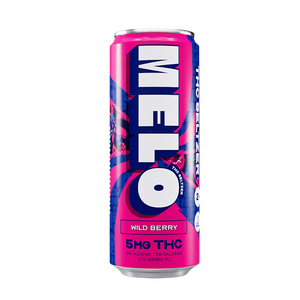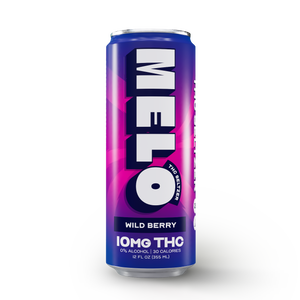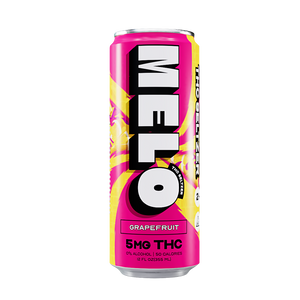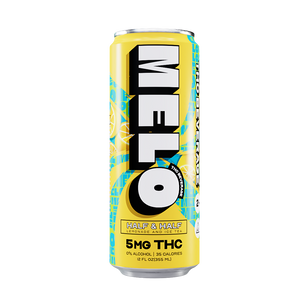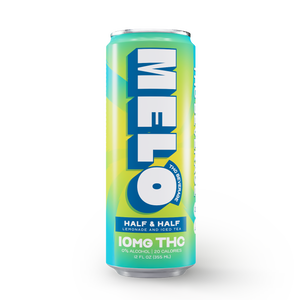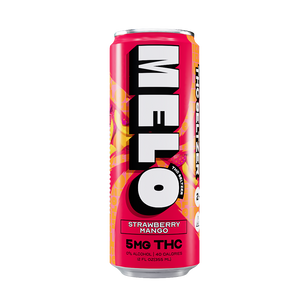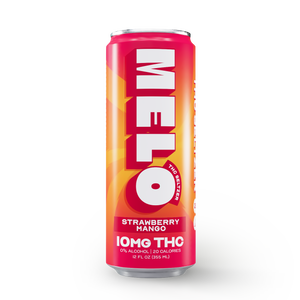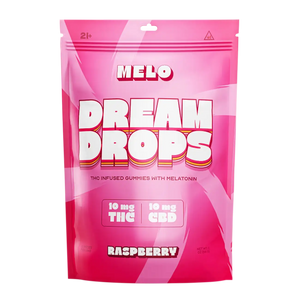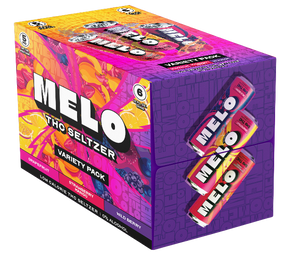

The Future of THC Beverages: Ensuring Safety and Consistency Through Rigorous Lab Testing
Understanding THC Tolerance And It's Effects
THC tolerance is a crucial concept to grasp when it comes to enjoying THC Seltzer or any other cannabis-infused product. Your body's tolerance to THC influences how you experience its effects, shaping your overall cannabis consumption journey. Over time, frequent use of THC can lead to a build-up of tolerance, meaning you may need a higher dose to achieve the same effects you once felt with lower amounts.
Understanding how THC tolerance impacts your experience is vital for responsible consumption. When your body becomes accustomed to a certain level of THC, you may find that the initial euphoric high diminishes over time.
This phenomenon is why many individuals recommend occasional breaks from consuming THC to reset their tolerance levels and fully appreciate the effects once again. Additionally, the effects of THC can vary depending on your tolerance levels.
For those new to cannabis products like THC Seltzer, even small doses can result in potent effects due to their lack of tolerance.
Moreover, understanding how different dosages affect you is vital in enjoying THC Seltzer responsibly. Everyone's body responds uniquely to cannabis compounds, so what works for one person may not be suitable for another.
Experimenting with varying dosages allows you to pinpoint your sweet spot—the amount that provides the desired effects without causing unwanted side effects. Being aware of common issues in testing the potency of THC beverages underscores the importance of 3rd party lab testing for such products.
Accurate testing ensures that consumers know exactly what they're ingesting, promoting transparency and safety within the cannabis industry. The steps involved in testing the potency of beverages are meticulous and essential for guaranteeing quality control from production to consumption.
Comprehensive Guide To Lab Testing THC Products
When it comes to THC Seltzer and other THC-infused products, ensuring accurate dosing and potency is crucial. This is where comprehensive lab testing of THC products plays a significant role. Lab testing of these products involves meticulous steps to guarantee quality and safety for consumers.
One common problem in THC beverage testing is the variability in potency levels within a single batch. Due to factors like uneven distribution of THC in the product, labs must conduct thorough testing on multiple samples from the same batch to ensure consistency.
This process is not a simple one. It's a complex series of steps that help identify any discrepancies and ensure that each bottle delivers the intended dose of THC. The intricacy and detail of the testing process are what make it so effective.
Labs typically analyze samples using high-performance liquid chromatography (HPLC) or gas chromatography (GC) methods. These techniques help quantify the concentration of cannabinoids, including THC, present in the product.
Labs can provide accurate potency measurements by following standardized procedures and using state-of-the-art equipment. Understanding the effects of different THC beverage dosages is also critical for consumers' safety.
Lab testing confirms the potency levels and helps determine appropriate serving sizes based on individual tolerance levels, which may help consumers to make informed decisions about their consumption by reducing the risk of overconsumption.
The importance of third-party lab testing for THC products cannot be overstated. Third-party labs offer unbiased evaluations of product quality, guaranteeing an extra layer of assurance for consumers.
By obtaining certifications from reputable labs, manufacturers demonstrate their commitment to transparency and accountability and ensure the highest standards of cannabis quality and safety. In an industry where consistency and accuracy are paramount, comprehensive lab testing is the key to maintaining quality control and consumer trust in the production of THC beverages.
Manufacturers can deliver reliable products with accurately labeled potency levels by adhering to strict testing protocols. Consumers can have peace of mind knowing that their favorite THC-infused beverages have undergone rigorous testing by independent labs, guaranteeing a safe and enjoyable experience.
Understanding Lab Certifications For THC Beverages
When you're diving into the world of THC beverages, understanding lab certifications is crucial. These lab certifications serve as a stamp of approval, insuring that the product has undergone rigorous testing procedures to ensure its safety and potency.
When you see a THC beverage with lab certifications, you can have more confidence in its quality and consistency. Lab certifications for THC beverages typically involve testing for potency, purity, and contaminants.
The potency testing determines the concentration of THC in the beverage, ensuring that it falls within the legal limits and accurately reflects what is stated on the label. Purity testing checks for unwanted substances or impurities that could compromise the product's safety.
Contaminant testing looks for pesticides, heavy metals, or other harmful substances that may have made their way into the beverage during production. One common problem in THC beverage testing is variability in potency levels within a single batch.
This inconsistency can lead to products with uneven effects, making it challenging for consumers to dose accurately. To address this issue, thorough testing protocols are essential to ensure that each bottle or can contains a consistent amount of THC.
By obtaining lab certifications, companies demonstrate their commitment to producing reliable products that deliver predictable effects. The steps involved in testing THC potency in beverages are meticulous and precise.
Samples are taken from different parts of a batch to account for any variations in cannabinoid distribution. These samples undergo extraction processes to isolate the cannabinoids before being analyzed using techniques like high-performance liquid chromatography (HPLC) or gas chromatography (GC).
The results provide insight into the exact concentration of THC present in the beverage, allowing manufacturers to adjust their formulations if necessary. The importance of 3rd party lab testing for THC products cannot be overstated.
Third-party labs offer an unbiased product quality evaluation since they are independent of manufacturers and distributors. This impartiality ensures that test results are accurate and trustworthy, giving consumers peace of mind when choosing a THC beverage.
By relying on third-party labs for certification, companies demonstrate transparency and accountability in an industry where trust is paramount. When it comes to understanding lab certifications for THC beverages, consumers should also consider the effects of different dosage levels.
Higher doses of THC can lead to more potent psychoactive effects, which may not be suitable for new users or those with low tolerance levels. Lab certifications provide valuable information on dosing guidelines and recommended serving sizes to help consumers make informed decisions about their consumption habits.
Regulatory Standards For THC Beverage Testing
There are strict regulatory standards for testing THC beverages to ensure their safety and accuracy. The steps involved in testing THC potency in beverages usually begin with sample collection, where a small amount of the beverage is taken for analysis. This sample is then subjected to various tests to determine the concentration of THC present.
One common problem in THC beverage testing is guaranteeing that the sample collected is representative of the entire batch. Potency variations can occur within a single batch due to uneven mixing or inconsistent infusion techniques.
Multiple samples may need to be taken from different parts of the batch and tested separately to address this issue. Third-party lab testing plays a role in verifying the accuracy of THC beverage potency claims.
By entrusting the testing of their products to independent labs, manufacturers cannot only ensure unbiased results but also build a strong foundation of trust with consumers. These labs, equipped with specialized equipment and following standardized procedures, provide reliable data on THC content, further enhancing the credibility of the product in the eyes of the consumers.
The significance of 3rd party lab testing for THC products cannot be overstated. It is a crucial step in preventing mislabeling, a potential risk that can have serious consequences for consumers. Inaccurate labeling can lead to unintended outcomes, such as consuming more THC than intended or not experiencing the desired effects due to underestimating dosage. This underscores the urgency of accurate testing and the importance of adhering to regulatory standards.
Different dosages of THC beverages can have varying effects on individuals, making accurate potency testing essential for both safety and consumer satisfaction. By adhering to regulatory standards and utilizing third-party lab testing, manufacturers can uphold quality control measures and provide customers with consistent, reliable products that meet industry standards.
Conclusion
The landscape of THC beverages is evolving rapidly, with advancements in lab testing techniques ensuring greater accuracy and reliability in determining potency and safety levels. As we navigate the complexities of THC tolerance, it is crucial to have an understanding of the effects of different dosage levels in THC beverages.
3rd-party lab testing is a cornerstone in the THC beverage industry, as it upholds regulatory standards and instills consumer confidence in the quality and consistency of THC products. Recognizing the common challenges in THC beverage testing enables us to take proactive measures to effectively address these issues.
Manufacturers within the THC beverage sector can ensure their products' authenticity and consumers' safety by adhering closely to established protocols and regulatory standards. The process of testing THC potency in beverages is complex and demands precision and expertise to produce reliable results that benefit both producers and consumers.
It is essential to recognize that the evolution of lab certifications for THC beverages signifies a commitment to transparency and accountability within the industry. Producers demonstrate their dedication to providing consumers safe and accurately labeled products by obtaining reputable certifications.
Regulatory standards for THC beverage testing continue to set benchmarks for quality control measures that safeguard public health while promoting innovation within the industry. As we look toward the future of THC seltzer and other infused beverages, it is essential to emphasize the significance of rigorous lab testing practices that prioritize accuracy and consistency.
By investing in reliable testing methods and staying informed about regulatory requirements, stakeholders can contribute to a safer and more transparent marketplace for THC products. Remember, knowledge is power when it comes to navigating the complexities of cannabis-infused beverages – stay informed, stay curious, and embrace the possibilities ahead!
